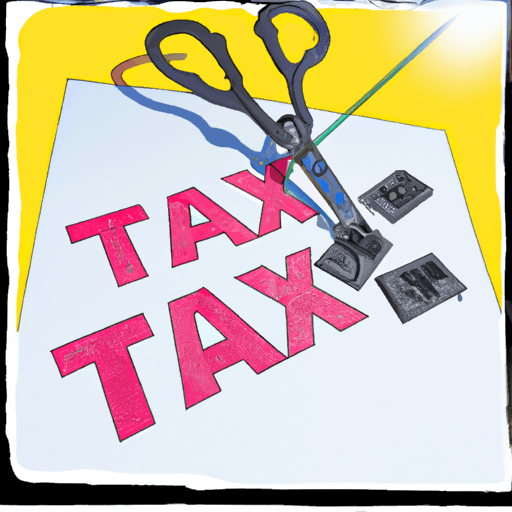How to create the Ultimate CV to get you any job

-
Table of Contents
- Introduction
- Identify Your Strengths and Highlight Them in Your CV
- Tailor Your CV to the Job You’re Applying For
- Use Action Verbs to Describe Your Achievements
- Include Relevant Keywords and Phrases
- Keep Your CV Concise and Easy to Read
- Provide Specific Examples of Your Skills and Experience
- Proofread Your CV for Errors and Typos
- Conclusion
“Craft a winning CV that showcases your skills and lands you your dream job.”
Introduction
How to create the Ultimate CV to get you any job.
Creating the ultimate CV is essential to stand out from the competition and land your dream job. A well-crafted CV showcases your skills, experience, and achievements in a clear and concise manner. In this article, we will provide tips and tricks on how to create the ultimate CV that will impress any employer.
Identify Your Strengths and Highlight Them in Your CV
When it comes to job hunting, your CV is your first impression. It’s the document that showcases your skills, experience, and qualifications to potential employers. Therefore, it’s essential to create a CV that stands out from the crowd and highlights your strengths.
In this article, we’ll discuss how to identify your strengths and highlight them in your CV to get you any job.
The first step in creating the ultimate CV is to identify your strengths. Your strengths are the skills and qualities that make you stand out from other candidates.
They are the things that you excel at and enjoy doing. To identify your strengths, start by making a list of your skills, experience, and achievements. Think about the tasks you enjoy doing and the ones that come naturally to you. Ask yourself what you’re good at and what sets you apart from others.
Once you’ve identified your strengths, it’s time to highlight them in your CV. The best way to do this is to tailor your CV to the job you’re applying for.
Look at the job description and identify the skills and qualities that the employer is looking for. Then, highlight your strengths that match those requirements. For example, if the job requires excellent communication skills, highlight your experience in public speaking or your ability to write clear and concise emails.
Another way to highlight your strengths is to use action verbs in your CV. Action verbs are powerful words that describe your achievements and skills. They make your CV more dynamic and engaging.
For example, instead of saying “I was responsible for managing a team,” say “I led a team of 10 employees, resulting in a 20% increase in productivity.” This statement not only highlights your management skills but also shows the impact of your work.
It’s also important to provide evidence of your strengths in your CV. This can be in the form of achievements, awards, or testimonials from previous employers. For example, if you’re applying for a sales job, include a statement like “Increased sales by 30% in the first quarter of 2021.” This statement not only highlights your sales skills but also provides evidence of your success.
Finally, make sure your CV is easy to read and visually appealing. Use bullet points to break up long paragraphs and use a clear and legible font. Use bold and italic text to highlight important information. Make sure your CV is well-organized and easy to navigate.
A well-designed CV will make a good first impression and show that you’re a professional.
In conclusion, identifying your strengths and highlighting them in your CV is essential to getting any job. Tailor your CV to the job you’re applying for, use action verbs, provide evidence of your strengths, and make sure your CV is visually appealing.
With these tips, you’ll create the ultimate CV that showcases your strengths and gets you noticed by potential employers.
Tailor Your CV to the Job You’re Applying For
Firstly, read the job description carefully. Highlight the skills and experience required for the role. Then, match your skills and experience to the job requirements. This will help you to identify the most relevant information to include in your CV.
Next, customize your personal statement. Your personal statement should be a brief summary of your skills, experience, and career goals. It should be tailored to the job you’re applying for. Use keywords from the job description to show that you have the skills and experience required for the role.
When it comes to your work experience, focus on the most relevant roles. If you have a lot of experience, you don’t need to include every job you’ve ever had. Instead, focus on the roles that are most relevant to the job you’re applying for. Use bullet points to highlight your achievements in each role.
This will help to demonstrate your skills and experience to potential employers.
If you’re applying for a job in a specific industry, it’s important to include any relevant qualifications or training. For example, if you’re applying for a job in finance, you should include any relevant accounting qualifications. This will help to demonstrate your knowledge and expertise in the field.
When it comes to your education, focus on the most relevant qualifications. If you have a degree, include the subject and the grade. If you have any relevant certifications or training, include these as well.
This will help to demonstrate your knowledge and expertise in the field.
Finally, make sure your CV is easy to read and well-organized. Use a clear font and make sure the layout is easy to follow. Use headings and bullet points to break up the text.
This will make it easier for potential employers to read and understand your CV.
In conclusion, tailoring your CV to the job you’re applying for is essential if you want to stand out from the crowd. By highlighting your skills and experience that are most relevant to the role, you can demonstrate to potential employers that you’re the right person for the job.
So, take the time to customize your CV for each job application, and you’ll be well on your way to landing your dream job.
Use Action Verbs to Describe Your Achievements
So, how do you go about using action verbs in your CV? The first step is to identify your achievements. This might include things like completing a project on time and under budget, increasing sales or revenue, improving customer satisfaction, or developing a new product or service.
Once you have a list of your achievements, you can start to think about the action verbs that best describe them.
Some examples of action verbs that you might use in your CV include “achieved,” “created,” “developed,” “implemented,” “improved,” “increased,” “launched,” “managed,” “negotiated,” “organized,” “oversaw,” “produced,” “reduced,” “resolved,” “revamped,” “streamlined,” “transformed,” and “won.” These verbs are all active and dynamic, and they help to convey a sense of accomplishment and success.
When using action verbs in your CV, it’s important to be specific and concrete. For example, instead of saying “improved customer satisfaction,” you might say “increased customer satisfaction by 25% through the implementation of a new feedback system.” This not only demonstrates your achievement, but it also shows how you achieved it and what specific impact it had.
Another important thing to keep in mind when using action verbs in your CV is to use them consistently throughout the document. This means using the same verb tense and voice (active or passive) for each achievement.
For example, if you start with “increased sales by 20%,” you might follow up with “developed a new marketing strategy that increased sales by an additional 15%.” This not only helps to create a sense of coherence and consistency in your CV, but it also helps to emphasize your achievements and make them stand out.
Finally, it’s important to remember that using action verbs is just one part of creating the ultimate CV. You also need to make sure that your CV is well-organized, easy to read, and tailored to the specific job you’re applying for.
This might mean highlighting certain skills or experiences, using keywords from the job description, or customizing your CV for each application.
In conclusion, using action verbs to describe your achievements is a powerful way to create a dynamic and impressive CV that can help you get any job you want. By being specific, consistent, and tailored to the job you’re applying for, you can demonstrate your skills, experience, and accomplishments in a way that is both compelling and persuasive.
So, if you’re looking to create the ultimate CV, start by identifying your achievements and using action verbs to describe them. With a little effort and attention to detail, you can create a CV that will help you stand out from the crowd and get the job of your dreams.
Include Relevant Keywords and Phrases

Keywords and phrases are the words and phrases that recruiters and hiring managers use to search for candidates. They are usually related to the job title, industry, and skills required for the role.
By including these keywords and phrases in your CV, you increase your chances of being found by recruiters and getting invited for an interview.
So, how do you identify the relevant keywords and phrases for your CV? The first step is to carefully read the job description and person specification for the role you’re applying for.
Look for the words and phrases that are repeated throughout the document. These are likely to be the keywords and phrases that recruiters and hiring managers are looking for.
For example, if you’re applying for a marketing role, some of the keywords and phrases you might look for include “digital marketing,” “social media,” “SEO,” “content creation,” and “analytics.” If you’re applying for a finance role, some of the keywords and phrases might include “financial analysis,” “budgeting,” “forecasting,” “accounting,” and “taxation.”
Once you’ve identified the relevant keywords and phrases, it’s time to incorporate them into your CV. The best way to do this is by including them in your personal statement, work experience, and skills sections. For example, in your personal statement, you might say something like “Experienced digital marketer with a proven track record in SEO, social media, and content creation.”
In your work experience section, you might highlight specific projects or achievements that demonstrate your skills in these areas. In your skills section, you might list your proficiency in specific tools or software related to the job.
However, it’s important to use these keywords and phrases in a natural and meaningful way. Don’t just cram them into your CV for the sake of it. Recruiters and hiring managers can spot this a mile away, and it will only harm your chances of getting the job.
Another way to identify relevant keywords and phrases is by using online tools such as Jobscan or Resume Worded. These tools analyse your CV and compare it to the job description, highlighting the keywords and phrases you’ve missed and suggesting ways to improve your CV’s relevance.
In conclusion, including relevant keywords and phrases in your CV is essential if you want to get noticed by recruiters and hiring managers. By carefully reading the job description and person specification, identifying the relevant keywords and phrases, and incorporating them into your CV in a natural and meaningful way, you can create the ultimate CV that gets you any job.
So, take the time to do your research, and don’t be afraid to use online tools to help you. With a little effort, you can create a CV that stands out from the crowd and gets you one step closer to your dream job.
Keep Your CV Concise and Easy to Read
When it comes to creating the ultimate CV, one of the most important things to keep in mind is to keep it concise and easy to read. Employers receive hundreds of applications for each job opening, and they don’t have the time or patience to sift through lengthy and convoluted CVs. Therefore, it’s crucial to make sure that your CV is clear, concise, and easy to read.
The first step in creating a concise and easy-to-read CV is to choose a simple and professional format. Avoid using fancy fonts, colours, or graphics that can distract from the content of your CV. Stick to a simple and clean design that is easy on the eyes and allows the employer to focus on your qualifications and experience.
Next, make sure that your CV is well-organized and structured. Use bullet points to break up long paragraphs and make it easier for the employer to scan through your CV quickly.
Start with a brief personal statement that summarizes your skills and experience, followed by your education, work experience, and any relevant skills or certifications.
When it comes to listing your work experience, focus on the most recent and relevant positions. Include the job title, company name, dates of employment, and a brief description of your responsibilities and achievements.
Use action verbs to describe your accomplishments, such as “managed,” “created,” “implemented,” and “achieved.”
It’s also important to tailor your CV to the specific job you’re applying for. Read the job description carefully and highlight the skills and experience that match the requirements of the job.
Use keywords from the job description in your CV to show that you have the skills and experience the employer is looking for.
Another important aspect of keeping your CV concise and easy to read is to avoid including irrelevant information. While it’s important to showcase your skills and experience, there’s no need to include every job you’ve ever had or every skill you possess.
Stick to the most relevant and impressive information that will make you stand out as a candidate.
Finally, make sure that your CV is error-free and easy to read. Use a spell-checker to catch any spelling or grammar mistakes, and have someone else read over your CV to catch any errors or inconsistencies.
Use a clear and legible font, such as Arial or Times New Roman, and make sure that your CV is formatted consistently throughout.
In conclusion, keeping your CV concise and easy to read is essential for getting noticed by employers and landing your dream job. Choose a simple and professional format, organize your information in a clear and structured way, tailor your CV to the job you’re applying for, avoid including irrelevant information, and make sure that your CV is error-free and easy to read. By following these tips, you’ll be well on your way to creating the ultimate CV that will get you any job you want.
Provide Specific Examples of Your Skills and Experience
When it comes to creating the ultimate CV, one of the most important things you can do is provide specific examples of your skills and experience. This is because employers want to see concrete evidence of what you can bring to the table, rather than just a list of generic skills and qualifications.
So, how can you go about providing specific examples of your skills and experience in your CV? Here are a few tips to get you started:
1. Use numbers and statistics
One of the most effective ways to provide specific examples of your skills and experience is to use numbers and statistics. For example, instead of simply stating that you increased sales at your previous job, you could say that you increased sales by 25% over a six-month period. This gives the employer a much clearer idea of what you achieved and how you did it.
2. Use action verbs
Another way to make your skills and experience stand out is to use action verbs. Instead of saying that you “worked on a project,” for example, you could say that you “led a team of five people to complete a project on time and under budget.” This not only shows what you did, but also how you did it.
3. Provide specific examples
When listing your skills and experience, it’s important to provide specific examples wherever possible. For example, instead of simply saying that you have “excellent communication skills,” you could say that you “successfully negotiated a contract with a difficult client, resulting in a 20% increase in revenue for the company.”
This shows that you not only have good communication skills, but that you can also use them to achieve tangible results.
4. Tailor your examples to the job
Finally, it’s important to tailor your examples to the job you’re applying for. This means highlighting the skills and experience that are most relevant to the position, and providing specific examples that demonstrate how you can add value to the company.
For example, if you’re applying for a marketing role, you might want to focus on your experience with social media campaigns or your ability to analyse market trends.
By following these tips, you can create a CV that showcases your skills and experience in a way that is both specific and relevant to the job you’re applying for.
Remember, the goal is to provide concrete evidence of what you can bring to the table, so don’t be afraid to get specific and use numbers, action verbs, and tailored examples to make your CV stand out from the crowd. With a little bit of effort and attention to detail, you can create the ultimate CV that will get you any job you want.
Proofread Your CV for Errors and Typos
When it comes to job hunting, your CV is your first impression. It’s the document that showcases your skills, experience, and qualifications to potential employers. Therefore, it’s essential to ensure that your CV is error-free and typo-free. A CV with errors and typos can be a deal-breaker for recruiters, and it can cost you the job you’ve been dreaming of.
In this article, we’ll discuss how to proofread your CV for errors and typos to create the ultimate CV that will get you any job.
Proofreading your CV is a crucial step in the job application process. It’s the final check before you hit the send button. The first step in proofreading your CV is to take a break. After spending hours writing and editing your CV, it’s easy to miss errors and typos.
Taking a break will help you come back to your CV with fresh eyes, and you’ll be able to spot mistakes that you missed before.
Once you’ve taken a break, it’s time to start proofreading your CV. The first thing you should do is read your CV out loud. Reading your CV out loud will help you identify awkward sentences, missing words, and grammatical errors. It’s also a great way to ensure that your CV flows smoothly and is easy to read.
After reading your CV out loud, it’s time to start checking for errors and typos. Start by checking for spelling mistakes. Use a spell checker to identify any spelling errors, but don’t rely on it entirely.
Spell checkers can miss errors, especially if you’ve used a word that’s spelled correctly but is the wrong word for the context. For example, if you’ve used “there” instead of “their,” a spell checker won’t pick up on the error.
Next, check for grammatical errors. Look for subject-verb agreement, punctuation errors, and sentence structure. Ensure that your sentences are clear and concise and that they convey the message you want to send. If you’re not confident in your grammar skills, consider using a grammar checker or asking a friend or family member to proofread your CV.
Another important aspect of proofreading your CV is checking for formatting errors. Ensure that your CV is consistent in terms of font, font size, and spacing.
Use bullet points to make your CV easy to read and ensure that your headings are bold and stand out.
If you’re not sure about the formatting, consider using a CV template to ensure that your CV looks professional and polished.
Finally, check for factual errors. Ensure that your dates, job titles, and qualifications are accurate. If you’ve included any statistics or figures, double-check them to ensure that they’re correct. Factual errors can be a red flag for recruiters, and they can damage your credibility.
In conclusion, proofreading your CV is a crucial step in the job application process. It’s the final check before you hit the send button, and it can make all the difference in getting the job you want.
Take a break before proofreading your CV, read it out loud, check for spelling and grammatical errors, ensure that your formatting is consistent, and double-check for factual errors.
By following these steps, you’ll create the ultimate CV that will get you any job.
Conclusion
Conclusion: To create the ultimate CV that can get you any job, you need to focus on highlighting your relevant skills and experiences, using a clear and concise format, tailoring your CV to the job description, and proofreading it thoroughly. Additionally, including a personal statement and showcasing your achievements can make your CV stand out from the rest. By following these tips, you can increase your chances of getting hired for your dream job.




